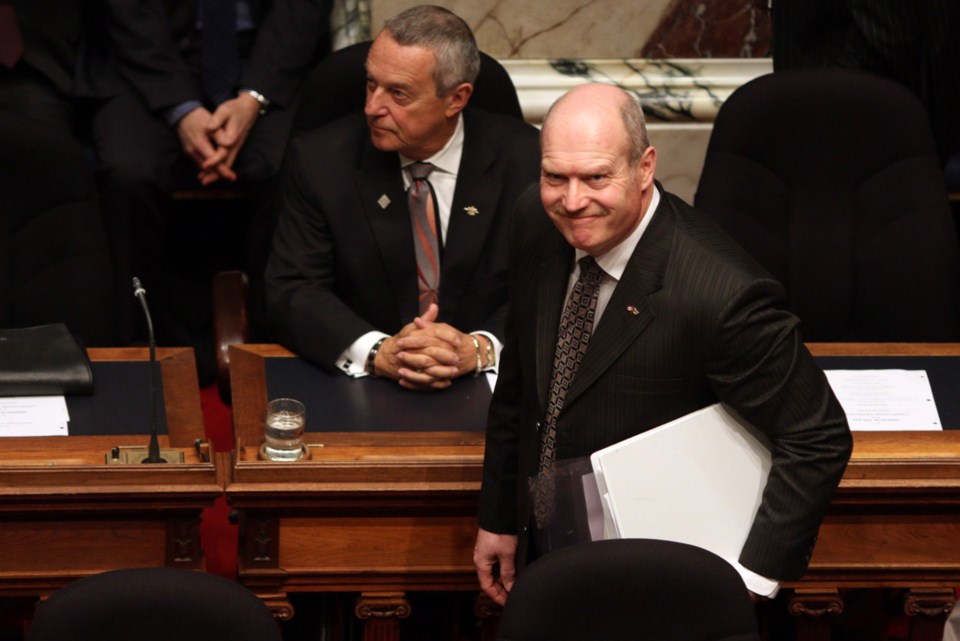In a bid to drive investment and have B.C.’s tax environment better reflect the provincial economy, the province is striking a commission to review the entire tax structure.
In the budget delivered Tuesday, Finance Minister Mike de Jong said the Commission on Tax Competitiveness will be given broad terms of reference and only one restriction — the scope of the work will explicitly exclude consideration of a return to the harmonized sales tax.
“I purposely made clear what we are not prepared to entertain,” de Jong told reporters.
“There is some room to manoeuvre, evolve, modernize.”
He said the goal is to address the competitiveness of B.C.’s tax system. He wondered about what degree it should be adjusted to take into account an economy that is very different from the one in which the system was created in 1948.
Budget documents note the change has been significant even within the past 35 years, in which time the size of the provincial economy has more than doubled. It has shifted to more emphasis on finance, insurance and real estate, which now make up nearly 24 per cent of B.C.’s gross domestic product, and away from manufacturing and utilities, which account for just under nine per cent.
De Jong said the commission will look at how the economy is changing and evaluate the effectiveness of tax instruments like the provincial sales tax in the modern economy.
“It is vital that we continue to create the kind of competitive tax environment that draws capital investments, industries, companies and jobs to our province,” he said in his budget speech.
The measure was greeted with enthusiasm by the B.C. Chamber of Commerce.
“We think this is phenomenal news,” president Jon Garson said.
“The business community has been very clear that what we need now is tax reform, not tax reductions, so a commission looking at how we compare to other jurisdictions and what are the appropriate measures to take to enhance our competitiveness is something that could have real long-term benefits for the B.C. economy.”
But he cautioned that there needs to be concrete action coming out of it.
“Tax competitiveness has been studied before,” he said. “This needs to lead to an action plan with concrete recommendations that government will take on board.”
Peggy Kulmala, public affairs manager for the Greater Victoria Chamber of Commerce, agreed it was a positive move, but suggested the commission take it a step further.
“We have been advocating for a [measure of the] effect of the overall tax burden,” she said, adding the chamber would like to see the review incorporate the municipal and federal tax burden as well. “The one-taxpayer approach is very important.”
De Jong said the commission will be named in the next few weeks. It is expected to report to the government in the fall.



